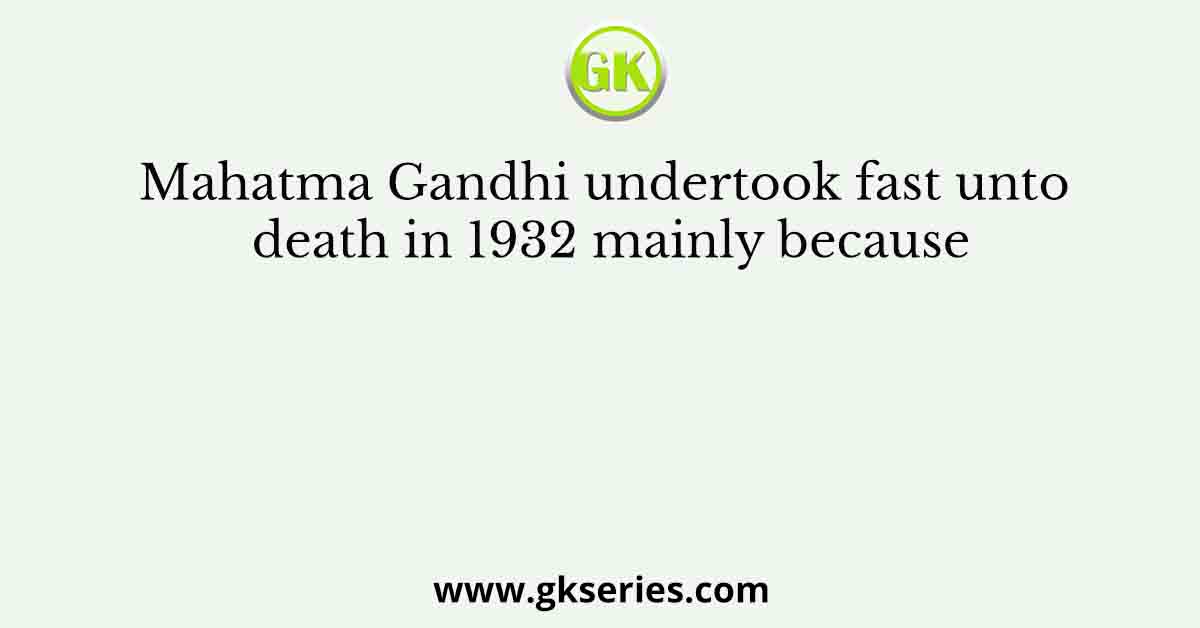
Q. Mahatma Gandhi undertook fast unto death in 1932 mainly because
(a) Round Table Conference failed to satisfy Indian political aspirations
(b) Congress and Muslim League had differences of opinion
(c) Ramsay Macdonald announced the Communal Award
(d) None of the statements a, b and c given above is correct in this context
Ans: (c) Ramsay Macdonald announced the Communal Award
Explanation: The correct answer is (c) Ramsay Macdonald announced the Communal Award.
Mahatma Gandhi undertook a fast unto death in 1932 primarily in response to Ramsay Macdonald’s announcement of the Communal Award. The Communal Award was a proposal made by the British Prime Minister Ramsay Macdonald as part of the Round Table Conference negotiations. It suggested separate electorates for different religious communities, including the Dalits (then referred to as the “Depressed Classes”).
Gandhi vehemently opposed the Communal Award as he believed it would further divide the Indian society along religious lines and perpetuate caste divisions. He saw the award as a betrayal of his efforts for Hindu-Muslim unity and the fight against untouchability.
To protest against the Communal Award, Gandhi initiated a fast unto death on September 20, 1932. This act put significant pressure on the British government and brought attention to the divisive nature of the Communal Award. Ultimately, negotiations took place, and an agreement known as the Poona Pact was reached, which modified the provisions of the Communal Award to ensure reserved seats for the Depressed Classes within the general electorate, rather than separate electorates.
Therefore, the primary reason for Gandhi’s fast unto death in 1932 was Ramsay Macdonald’s announcement of the Communal Award and Gandhi’s opposition to its provisions.





